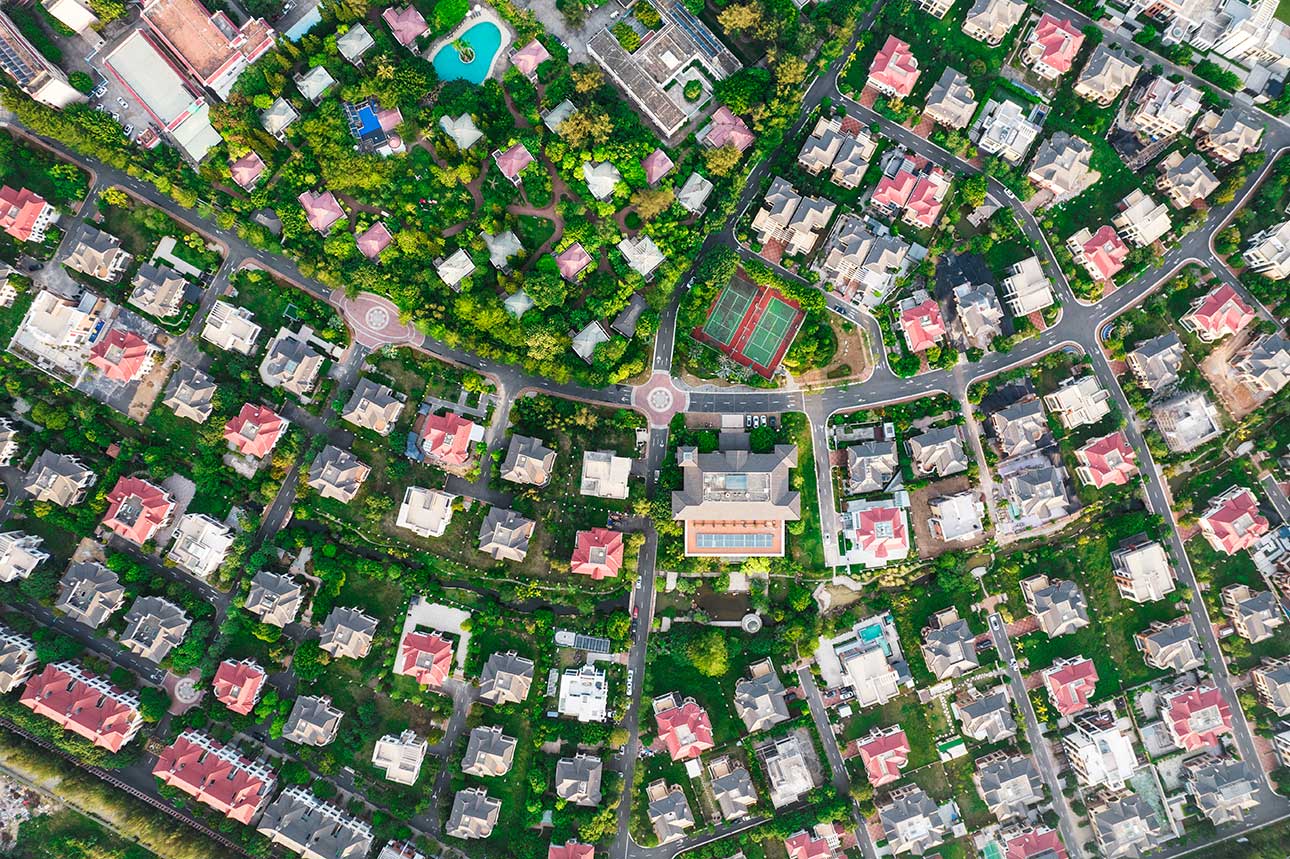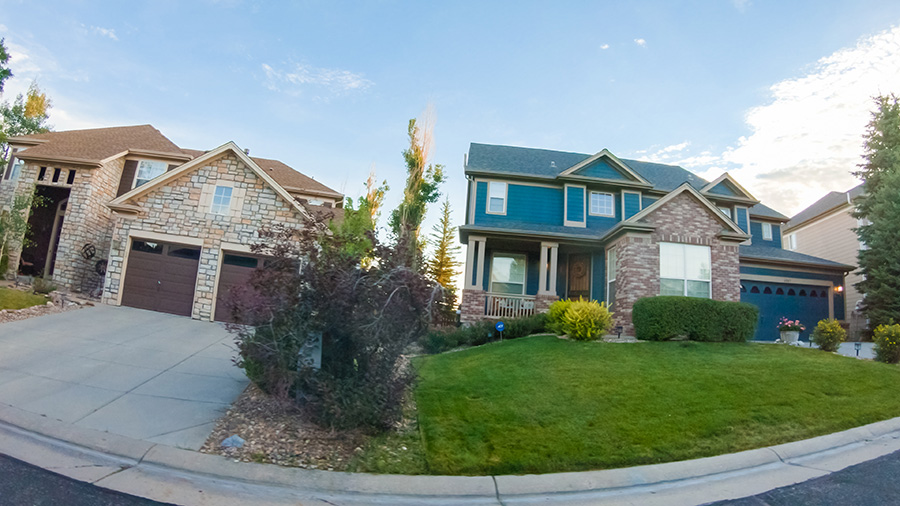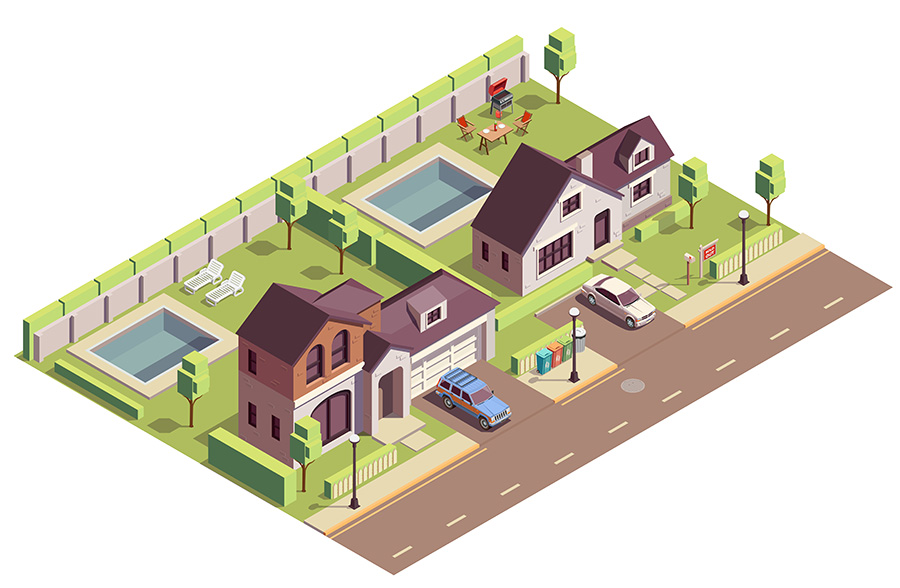How does buying a home in an HOA community affect you?
Updated Mon, Mar 17, 2025 - 7 min read
Top blog articles
When considering buying a home in an HOA community, it is crucial to thoroughly examine every aspect of the process. Keep in mind that investing in a home is a major financial commitment. And, you don’t want to regret choosing a particular type of residence or HOA neighborhood.
Want to know more about living in an HOA community? Here’s a lowdown on what this kind of living arrangement entails.
What is an HOA community?

HOA stands for homeowners association. It’s a self-governing organization in certain communities such as individual houses, townhouses, high-rise apartments, or condos. Generally, homeowners collectively pay fees to maintain the living units or common areas here. About 25% to 27% of the people who live in the United States do so in HOA communities. This means, approximately 27.5 million occupied houses countrywide.
Keep in mind that the exact responsibilities of the HOA will depend on the type of property it is. For example, a condominium HOA may oversee the management of the entire property, while a townhouse HOA community may only maintain common areas such as swimming pools, parks and green spaces, parking lots, roads, and communal lawn maintenance as well as outdoor landscaping.
And here’s the catch – living in an HOA community entails paying fees and adhering to specific rules, regulations, and bylaws, enforced by the association. If you’re a property owner in an HOA community, you’ll be obligated to follow these rules and pay HOA dues on time. These funds go toward the upkeep and utilization of the common areas.
How do HOA communities work?
The goal of homeowner associations is to make certain “common interest” rules and enforce them on the community residents. When you buy an HOA residence, you are required to take and honor an HOA membership.
Typically, the HOA members are resident homeowners who volunteer and are elected to a board that then oversees the HOA’s management. This board of directors ensures that the HOA’s rules and regulations are followed by every member.
An HOA commonly outlines its regulations in a document known as a Declaration of Covenants, Conditions, and Restrictions (CC&Rs). These specify requirements for property owners regarding property maintenance. They encompass various aspects, including structural limitations such as the usage of a particular type of fence and permitted yard landscaping. Additionally, they may cover minor aesthetic decisions, such as house paint colors or even front door colors. The CC&R document also specifies the consequences for breaching the outlined guidelines, which may involve fines or, in extreme cases, legal action against the homeowner.
Read more: What is CAM in commercial real estate?
What is the average HOA fee?
A homeowner residing in an HOA community can expect to pay anywhere from $200 to $2,500 annually to cover the HOA costs and fees. This amount may vary from one HOA to another depending on the type of property, the shared amenities offered, and the maintenance tasks performed.
In comparison to HOA neighborhoods that only enforce rules and limits, areas that offer substantial amenities typically charge significantly more.
Also, sometimes, homeowners could be required to pay additional fees to cover the damages after a natural disaster or if the neighborhood needs sudden expensive repairs and the reserve funds have run out. The HOA has the authority to impose such fees and special assessments in unique situations.
What do HOA fees cover?

Homeowners need to pay their share of the HOA costs so that the association can seamlessly work toward the betterment of the living area. The fees would cover some common expenses and management services such as:
- Landscaping and lawn maintenance in the common areas.
- Regular maintenance tasks such as cleaning streets, swimming pool maintenance, and ensuring pest control.
- Garbage pickup.
- Access to parking lots.
- Shared utilities such as common area lights, road construction, and paintwork.
- Safety and security measures such as installing CCTV cameras and fence building.
Read more: Certificate of occupancy
What are some common HOA rules and regulations?
Homeowners Association rules and regulations can vary depending on the specific association and its governing documents. Therefore, it’s important to review the bylaws of your particular HOA for a comprehensive understanding.
However, here are some common rules that most HOAs emphasize:
- Architectural guidelines: These rules specify requirements for exterior modifications or improvements to ensure uniformity and preserve the community’s aesthetics.
- Landscaping and yard maintenance: HOAs often have rules regarding lawn care, tree trimming, landscaping designs, and limitations on outdoor structures such as storage sheds or lawn fences.
- Noise restrictions: Guidelines may be in place to limit excessive noise during specific hours to maintain a peaceful environment for residents.
- Pet policies: HOAs may impose restrictions on the number, size, or breed of pets allowed within the community. Leash requirements and waste cleanup rules are also common.
- Parking regulations: Rules govern where and how residents and guests can park vehicles. This may include restrictions on-street parking, parking permits, or limitations on commercial vehicles or recreational vehicles.
- Rental or lease restrictions: Some HOAs limit or regulate the ability of homeowners to rent out their properties, impose lease duration restrictions, or require renters to adhere to HOA rules. There may even be restrictions regarding occupancy limits for homeowners.
- Common area usage: Guidelines outline the permitted use and reservation process for shared amenities such as pools, gyms, playgrounds, or community rooms.
- Exterior maintenance: HOAs may have rules requiring regular maintenance and upkeep of homes’ exteriors, including guidelines for painting, roofing, or general cleanliness. Sometimes, even holiday decoration rules.
- Trash and recycling: Regulations outline guidelines for waste disposal, including the use of designated containers, recycling practices, and rules on bulk item disposal.
Read more: Are HOA fees worth it?
What are the pros and cons of being in an HOA community?

- Some homeowners enjoy living in an HOA community, while others may find the rules too restrictive. It’s best if you make a final decision only after listing out the pros and cons.
Advantages
- Your neighborhood will be well-maintained with minimal effort required from you.
- Rules governing maintenance and property appearance can potentially increase your home value.
- Exclusive amenities such as swimming pools, playgrounds, clubhouses, gyms, and security may be accessible.
- HOA events can facilitate socializing with neighbors.
- The HOA board will mediate disputes between neighbors regarding property-related issues that violate the rules (e.g., noise complaints, unkempt yards, or fence disputes).
Read more: What is CCR in real estate?
Disadvantages
- HOAs have significant control over how you can maintain and live in your home. You may face restrictions on home designs, color schemes, paint colors, or the number and type of pets allowed.
- There could be serious limitations. For instance, certain HOAs demand prior consent for home improvements or a roof replacement, while others forbid renting out properties. In some cases, HOAs restrict the quantity of plants in the front yard, or the height of fences.
- HOA fees can strain your monthly housing budget, especially if home prices are already high in your area.
- Some HOAs can be overly strict, issuing violation notices for minor infractions. The most severe consequences for non-compliance with rules or overdue HOA payments can involve fines or liens on the homeowner’s property.
Read more: Condemnation real estate
Key takeaways
- A homeowner association creates and enforces rules for a planned community, an apartment complex, or a condominium building.
- HOA members aka board members are elected among the residents.
- Most communities mandate membership for all the property owners in the area.
- Homeowner associations collect fees for maintaining common areas and facilities.
- Homeowner associations can issue fines to homeowners who don’t follow the rules.
The bottom line is that living in an HOA community may not be for everyone but if it suits your lifestyle, you can enjoy its benefits such as access to amenities, enhanced security, regular day-to-day maintenance, community management, and regular social interaction with neighbors.
Read more: Zero lot line house









